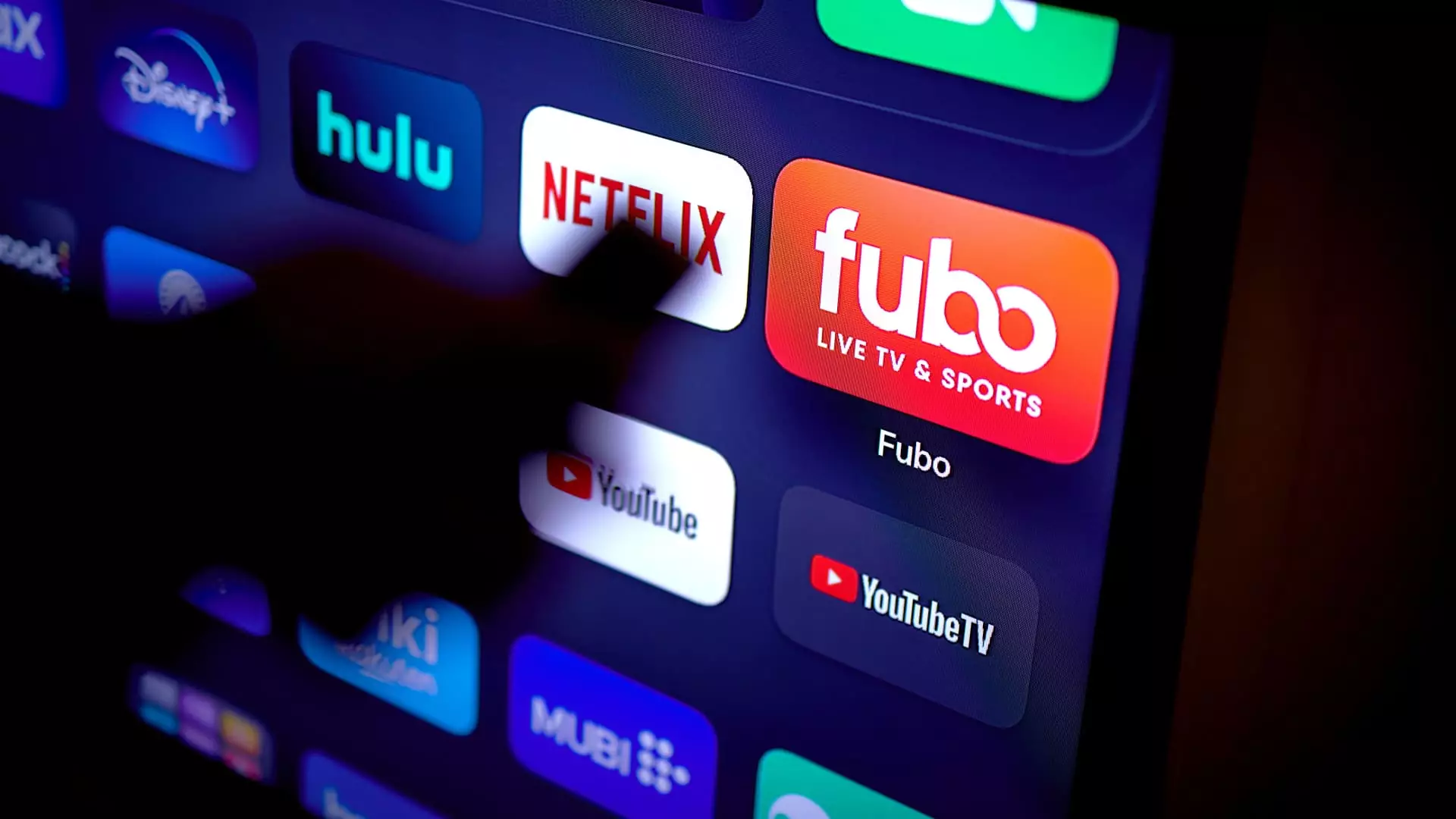The merger of Disney’s Hulu+ Live TV with Fubo is a significant development in the streaming industry that could reshape viewers’ experiences and the competitive landscape of live television. This transaction, announced on a recent Monday, marks a strategic move by Disney, which will acquire a 70% ownership stake in the newly formed company—Fubo, a publicly traded entity. The expectation is that this deal, projected to finalize within 12 to 18 months, will not only enhance subscriber engagement but also streamline content offerings, amplifying the companies’ respective strengths.
At its core, the merger targets integration rather than a complete overhaul of the current streaming services. With a combined subscriber base of 6.2 million, this partnership capitalizes on the strengths of both Hulu+ Live TV and Fubo, which are well-established platforms within the growing segment of internet-based television. While Hulu+ Live TV is recognized for its extensive entertainment options, including critically acclaimed original programming that competes with behemoths like Netflix, Fubo has built its brand around being a go-to source for sports and news content. This complementary nature is strategically vital; consumers value choice, and the combined resources are likely to cater to a wider audience while enhancing retention metrics.
David Gandler, co-founder and CEO of Fubo, emphasized this point during an investor call by articulating the distinct yet overlapping customer bases of both services. His remarks highlight the challenges and opportunities presented by maintaining dual platforms in a digital age that often favors consolidation and simplicity.
The financial implications of this merger are noteworthy, with Fubo’s stock experiencing a dramatic increase of 190% following the announcement. Having closed at $1.44 a share before the news broke, this surge reflects investor optimism about the potential cash flow positivity that the merger is expected to generate for Fubo. The stock rally signifies not only a successful business model but also a burgeoning confidence in a more robust content delivery platform that could dominate the streaming landscape.
Moreover, Disney’s financial commitment to Fubo—including a $145 million term loan for 2026 and a collective $220 million cash payout to reconcile previous litigation—shows a significant investment in ensuring stability and growth for the merged entity. The termination fee of $130 million, should the merger not materialize, also underscores Disney’s confidence in the deal proceeding.
An important but often overlooked aspect of this merger is the resolution of previous legal disputes between Fubo and Disney regarding Venu, a proposed sports streaming service. Fubo had alleged that Venu’s introduction would create an anti-competitive environment due to the significant control Disney, Fox, and Warner Bros. Discovery have over U.S. sports media rights. The resolution of this conflict not only paves the way for the continuation of Venu’s launch but also affirms a collaborative spirit amid competitive pressures within the streaming arena.
The potential for Venu to coexist with the new Disney-Fubo entity raises questions about market competition and consumer choices. As the streaming landscape continues to evolve, having multiple players catering to varied content preferences is essential to avoid monopolization of media rights and ensure diversity in programming.
As the entertainment industry navigates technological advancements and changing viewer habits, the implications of the Disney-Fubo merger could serve as a catalyst for further consolidation among streaming services. With competition from platforms such as YouTube TV and various niche subscription services, companies may increasingly consider partnerships that leverage each other’s assets, melding sports, news, and entertainment into unified offerings that resonate with viewers.
Furthermore, Disney’s moves—particularly its plans to innovate within ESPN’s streaming strategy—suggest a multifaceted approach to engaging audiences and expanding content accessibility. The direct-to-consumer app set to launch later this year signals a commitment to providing diverse and tailored options for subscribers, ensuring they have access to the content they desire.
The merger between Disney’s Hulu+ Live TV and Fubo represents not just a shift in ownership stakes but a broader initiative to respond effectively to the challenges and opportunities within the streaming market. With a combined focus on enhancing viewer experience, maintaining competition, and leveraging strengths, this alliance could herald a new era for live television, setting the stage for subsequent industry developments.

